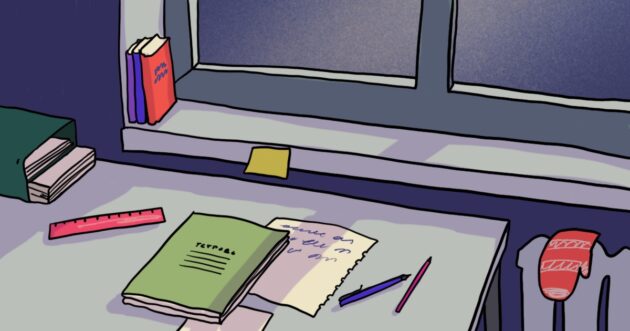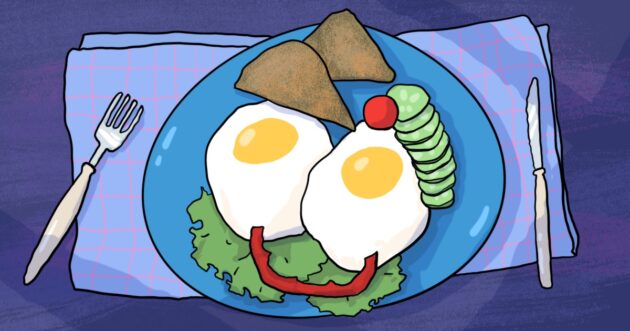Both parents and teachers often notice that after the New Year holidays, many students study worse than they did a month ago. Children become more sluggish or vice versa — stressed and nervous. They are slower to assimilate information and understand new topics. It becomes more difficult for many to do their homework. And it takes a lot more time for a student to memorize the same amount of material as in the fall.
Even the guys who always study with pleasure may have problems. And not only related to studies — children's mood often deteriorates, and even boys and girls sometimes engage in their favorite hobbies without the usual enthusiasm.
As a rule, such symptoms can occur in schoolchildren in mid—January, and manifest themselves as much as possible in February — early March. Doctors and teachers often refer to such a decline as "third quarter syndrome" — this is a stable expression parents can hear from both the class teacher and the school psychologist.
There are several of them, and they all operate in a complex.
This is one of the main causes of apathy and reduced energy. Studies show that the lack of ultraviolet light worsens Effect of sunlight exposure on cognitive function among depressed and non‑depressed participants: a REGARDS cross‑sectional study / National Library of Medicine, USA cognitive abilities. This means that it becomes more difficult to study and memorize new information. Well, a short daylight hour, when we all wake up and leave the house in the dark, can be one of the reasons for a depressed mood.

To feel comfortable, you need to wear several layers of warm clothes. And still, sometimes your hands freeze, and even the warmest and fluffy scarf does not save you from the icy wind. After 1-2 months of such weather, even the thought of having to go outside can spoil the mood and cause apathy.
The third quarter is longer than the rest. At the same time, the first one, which is not much shorter, subjectively flies faster. After all, a lot of new subjects, unusual activities and fresh impressions are added in the fall.
The second quarter is spent in anticipation of the New Year, gifts, long weekends and festive entertainment. The fourth is the final breakthrough before the summer holidays, so it's easier to survive it too.
But the third quarter is not just the longest — often this period accounts for a lot of new and complex information. Moreover, there is no reward waiting for students at the end — there are no bright holidays , nor long vacations. Therefore, it can be more difficult to overcome these months.
Alas, this reason often enhances the effect of all the others. Every now and then students hear: "The third quarter is the most serious. If you do not master the program now, there will be gaps in knowledge. So then you will write the tests poorly and get problems in the exams."
In addition, teachers often say that grades for the third quarter may be more significant than for the rest. And if a student, for example, has two final threes and two fours, then the annual grade may be exactly the same as in the third quarter. Therefore, teachers add, it is worth making more efforts, doing more actively, and in general — "treat your studies responsibly, otherwise you will have to regret missed chances."
Such pressure is unlikely to help students to relax and study with pleasure. On the contrary, many people feel that they simply cannot cope with the load, and they cannot fix the situation in any way.
If a child is in a depressed mood, if it has become more difficult for him to do his homework and does not want to go to school at all, it is worth making sure that he is healthy. Sometimes such conditions can signal some problems. For example, about incomplete recovery after acute respiratory viral infection. In this case, it is worth discussing the situation with the doctor and, if necessary, undergo the course of treatment prescribed by him.
If all the indicators are normal and the doctor does not see any problems, it will be easier to cope with the situation. Remember that winter will end, and many difficulties will be behind you.The main thing to do is to support the child. It is important that the student understands that he is not alone, and you will cope with the problems together. If he feels constant pressure from teachers, hears accusations of laziness and irresponsibility, he can talk with the class teacher. Sometimes such a conversation is enough to weaken the external pressure.
But sometimes the pressure from the outside does not stop. Then it is worth the joint efforts of all family members to turn the house into a place where everyone can relax, relax and recuperate. The quiet harbor is good at any time of the year. But in the cold and dark winter months, it is especially necessary for both children and adults.
Here's how to do it:

You should not eat only spinach, boiled fish and carrots instead of your favorite dishes: sudden changes in diet can only increase stress. And delicious dishes, even if not ideal from the point of view of healthy lifestyle, can improve the mood of all family members. Therefore, try not to radically change your diet, but add more vegetables and replace semi-finished products with natural products.
Positive emotions will help you cope with problems more easily. Holidays may not coincide with the generally accepted ones, but they can become important for your family.
You can safely plan, for example, a day of your favorite desserts and cook or buy the most delicious sweets according to your family. Or spend a whole week of comedies and after dinner watch one of the movies with the whole family. Think about what will please your loved ones.
And more. Trying to help the child, do not forget about yourself. Try to keep a balance between business and leisure yourself and look for ways to recuperate.